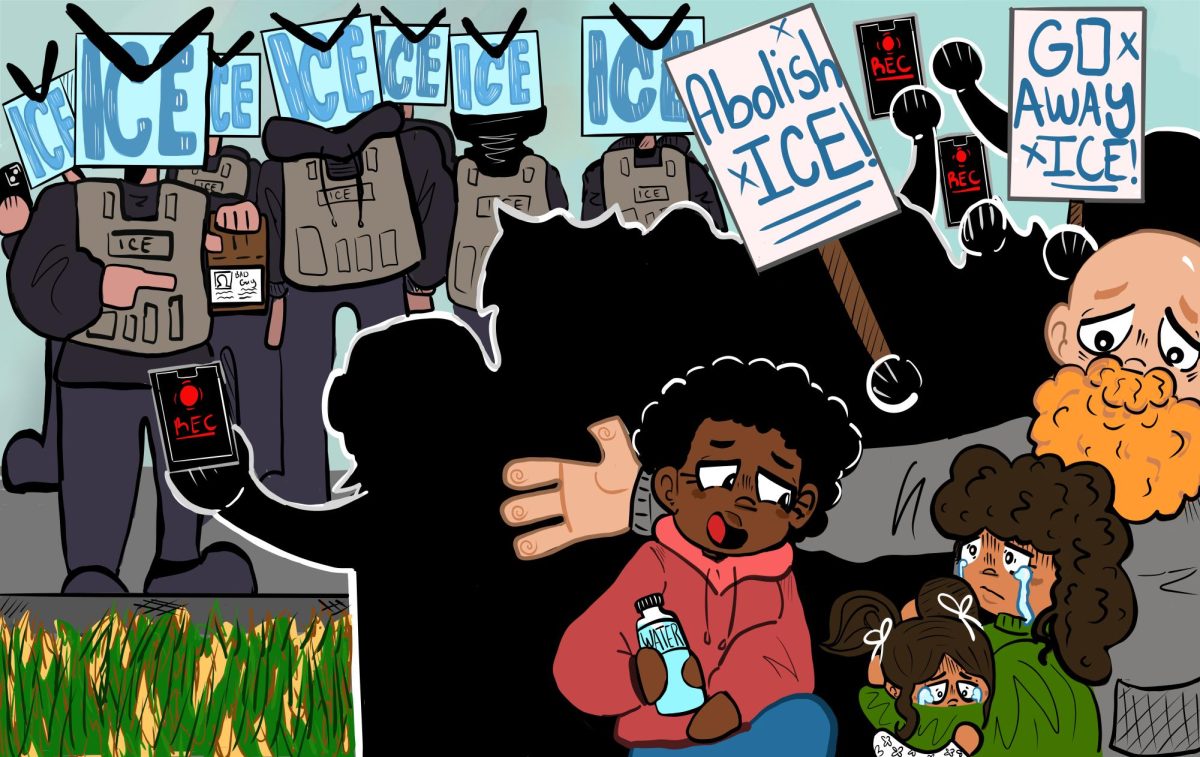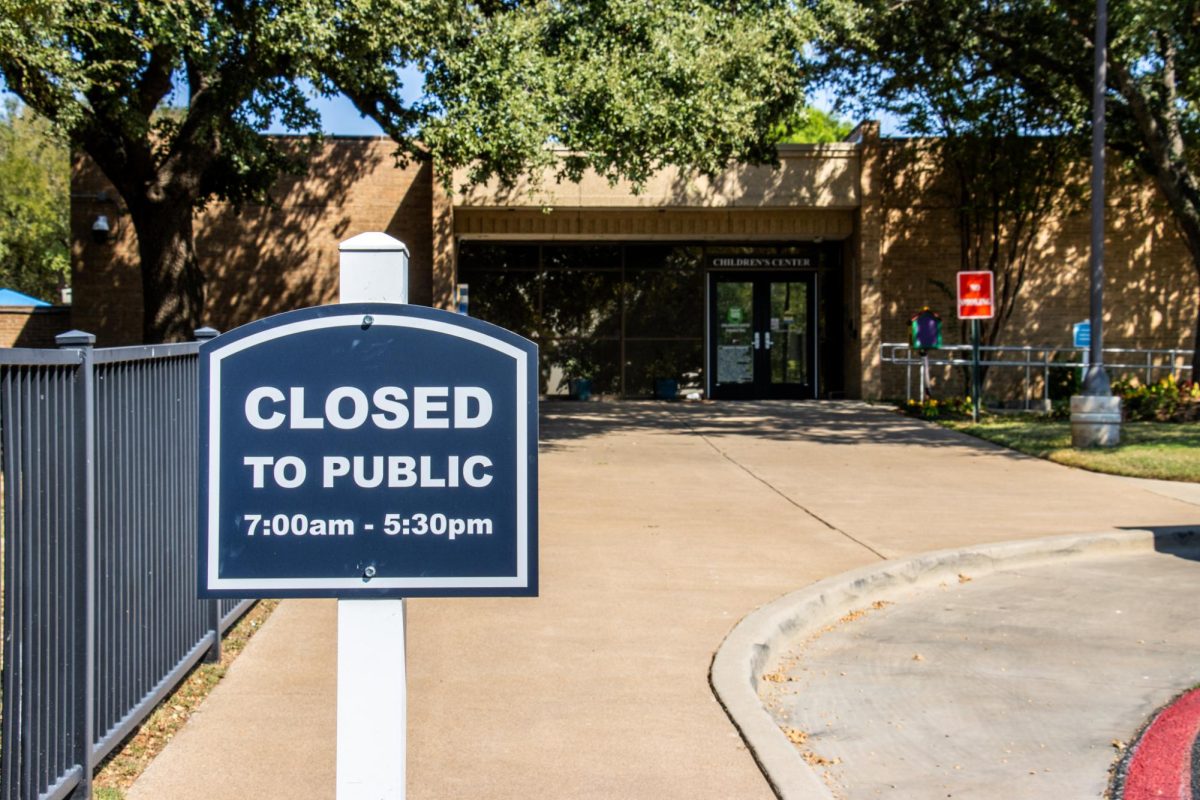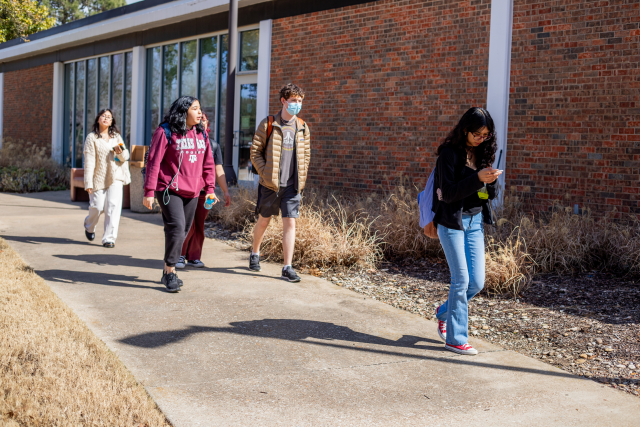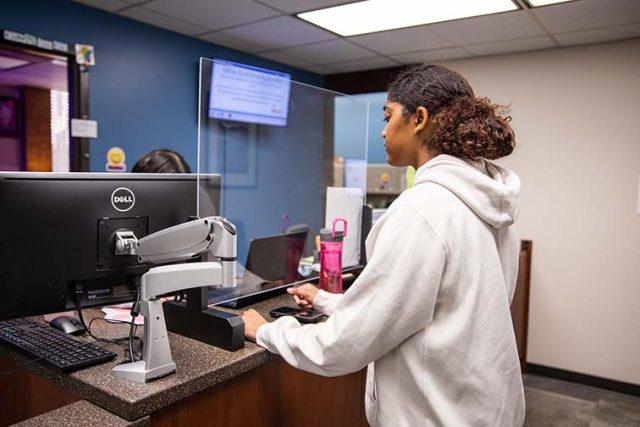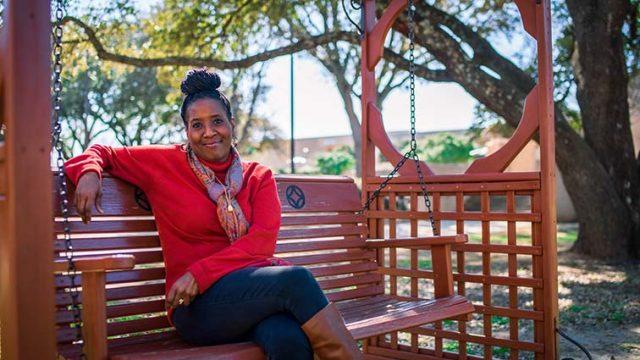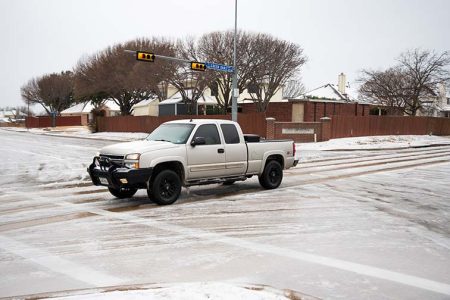
winter storm in the beginning of February.
Joel Solis/The Collegian
ALEX HOBEN
editor-in-chief
alexandra.hoben@my.tccd.edu
TCC had to close campuses for four days due to an ice storm that swept the state of Texas.
On Monday Jan. 30, TCC issued a notice that all campuses would be closing at 1 p.m. that day due to inclement weather. The initial notice stated that the closure would extend to the next day. Over the week, additional notices letting students and faculty know the status of the district were sent out until the district reopened on Friday at 10 a.m..
According to director of emergency management Kirk Driver, the weather over the week is classified as a winter storm and requires extensive monitoring from the winter weather team here at TCC.
“What we do as the winter weather team, it kind of starts with the department of emergency management and our relationship with the National Weather Service office in Fort Worth,” he said. “They integrate a lot with emergency managers across the region, and they provide us a level of detail for weather events that would help us make it easier if we have to decide on a change of operations for our organization.”
The winter weather team involves the department of emergency management, the police department, the chief operating officer, the vice chancellor for external affairs and communications and then the chancellor, Driver said. They are the ones who consider the reports given by the weather service as well as communicate with surrounding districts to determine whether to close the campuses or not.
In this case, the forecast that had come out on Sunday regarding the initial impact of the ice storm was not correct for the conditions that were seen on Monday, and that is when Driver had to have conference calls with the weather service and relay that information to the rest of the weather team.
“Things just kind of amped up a little bit more for the Metroplex there Monday morning,” Driver said. “As soon as that became apparent then it was quick to have the winter weather team get together, review the information, see what’s going on and then find out from our community partners and then let’s not waste any time and have conditions you know get worse for us.”
The report on Monday came out at 8:30 a.m., Driver said. Afterwards, the team met up and went over the data to determine if the school would be closing down. He said this was a difficult situation, especially choosing the timing, because there were already students and teachers on campus for classes and they were anticipating more coming in for midday classes, as well.
“So when is the best time? You really just don’t have a best time to say, ‘Now we’re going to close,’ it’s so many different moving elements there,” he said.
NE student Jadha Ragland said TCC didn’t respond quickly enough. As a student worker she would have to be on campus by 8 a.m., and when she looked at the conditions Monday morning, she could already tell that most roads wouldn’t be safe to travel on and had noticed most schools had already closed.
“It was disappointing because I imagine there are a lot of students who don’t have the resources to make an unnecessary trip to campus, myself included,” she said.
NE student Bronwyn Beasley shared this sentiment and said on Monday morning she had already chosen to stay home because she thought that’d be the safest for her.
“But if I had attempted to travel for class and then had to turn back around, I would’ve been very disappointed and in danger of the hundreds of students simultaneously leaving campus,” Beasley said.
Ragland said that she was worried about the road conditions in her neighborhood and how it would affect her family, specifically her husband whose work didn’t close on Monday or Thursday that week.
“I was highly concerned because he works from 3 p.m. to roughly 3 a.m., which is the coldest time, and ice is less visible in the dark,” she said. “It made me realize how companies will quickly replace you in case of significant injury or death.”
Driver said that the Fort Worth office of the weather service has been a great help in situations like these, and the tools they provide as well as the reports and conference calls were essential in ensuring the TCC community was safe and informed during the storm.
“The number one factor is the safety of our students, faculty and staff if they’re going to have to leave their homes and then come into campus,” he said. “So that really is the number one decision for us as to what we do. But you know there are just so many different factors that we look at.”











